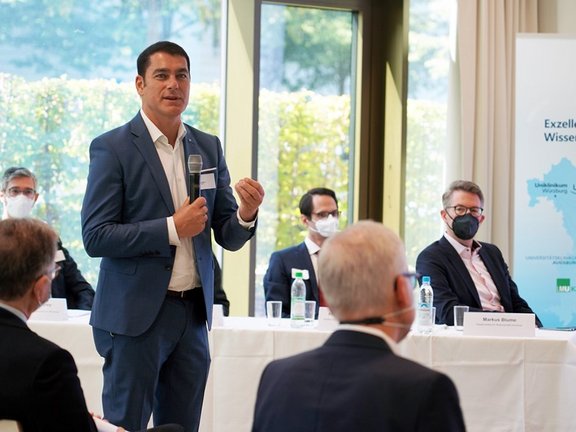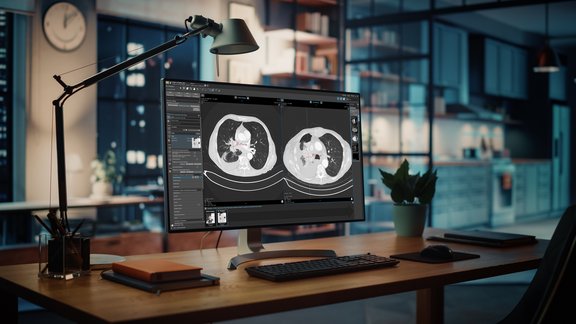Improving the diagnosis and treatment of cancer patients by harnessing the potential of digitalization and standardization is the ultimate ambition of the Bavarian Oncology Radiology Network (BORN) Project.
The BORN Project is an initiative of the Bavarian Center for Cancer Research (BZKF) in collaboration with the radiological institutes of all six university hospitals in Bavaria. On August 1, 2022, BORN was kicked off by the Bavarian Minister of State for Science and the Arts, Markus Blume, and the Bavarian Minister of State for Health and Care, Klaus Holetschek.
Mint Medical and Brainlab will closely work with the university hospitals and the BZKF to establish uniform and structured reporting in oncological imaging, as well as to develop a secure IT infrastructure for the capture and exchange of data.
Initially, reading templates will be developed for six different entities, which will allow the reporting of cancer cases to be standardized across all Bavarian university hospitals. After clinical evaluation at the university hospitals, the standardized collection and assessment of imaging data can be extended to other hospitals and practices to benefit all patients in Bavaria. Moreover, this will create an unprecedented data pool for prospective and retrospective studies over a population area of 13 million residents. "As the first project of this scale, the BORN project will create a worldwide unique data basis for the development of image-based biomarkers and artificial intelligence (AI) machine learning techniques," stated Prof. Dr. Thomas Kröncke, one of the speakers of the BORN Project.
Klaus Holetschek emphasized the importance of collecting structured, holistic health data while ensuring data privacy: "Overall, we need to make healthcare data more usable - to improve patient treatment, but also for research, development and politics. Data protection and data use must always be considered in unison." In the BORN Project, data collection is decentralized to the individual clinics, addressing the confidentiality of the data, data protection and management. By design, data ownership remains with the respective centers, which can differentially release the data contributed by them - from general use for medical research to specific collaborative research projects.
Find out more by reading the press release of the BZKF (in German only): https://bzkf.de/wissenschaftsminister-blume-und-gesundheitsminister-holetschek-verkuenden-den-start-des-born-projekts-am-bzkf/
Further information about the project is available here: www.bzkf.de/born/



